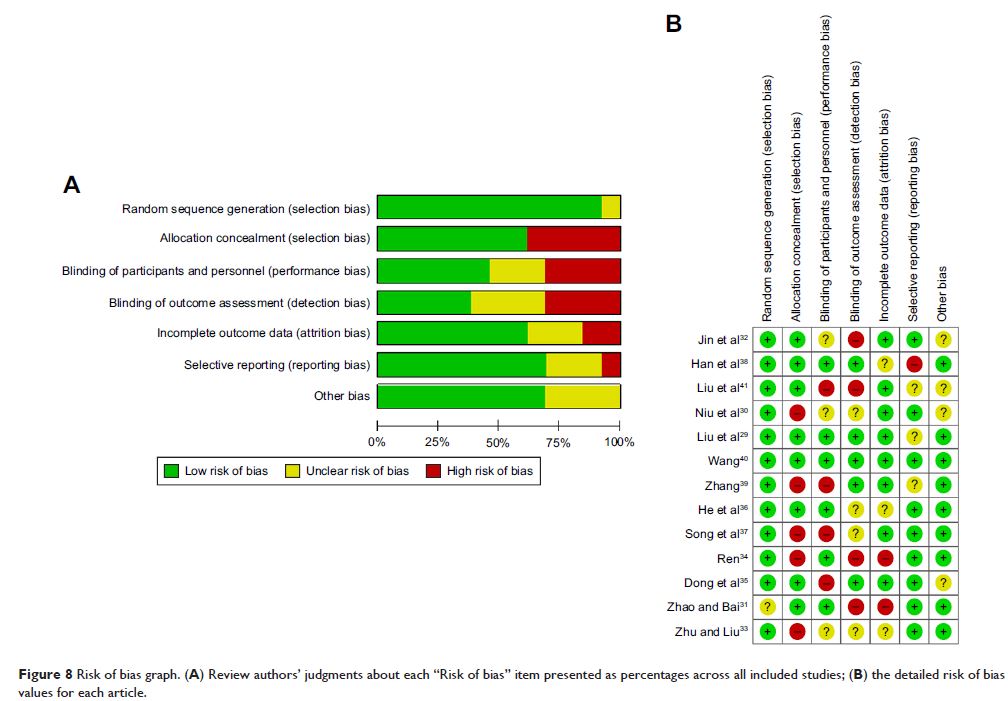108985
论文已发表
注册即可获取德孚的最新动态
IF 收录期刊
- 3.4 Breast Cancer (Dove Med Press)
- 3.2 Clin Epidemiol
- 2.6 Cancer Manag Res
- 2.9 Infect Drug Resist
- 3.7 Clin Interv Aging
- 5.1 Drug Des Dev Ther
- 3.1 Int J Chronic Obstr
- 6.6 Int J Nanomed
- 2.6 Int J Women's Health
- 2.9 Neuropsych Dis Treat
- 2.8 OncoTargets Ther
- 2.0 Patient Prefer Adher
- 2.2 Ther Clin Risk Manag
- 2.5 J Pain Res
- 3.0 Diabet Metab Synd Ob
- 3.2 Psychol Res Behav Ma
- 3.4 Nat Sci Sleep
- 1.8 Pharmgenomics Pers Med
- 2.0 Risk Manag Healthc Policy
- 4.1 J Inflamm Res
- 2.0 Int J Gen Med
- 3.4 J Hepatocell Carcinoma
- 3.0 J Asthma Allergy
- 2.2 Clin Cosmet Investig Dermatol
- 2.4 J Multidiscip Healthc

在年龄相关性黄斑变性治疗中使用新抗 VEGF 药物 conbercept 的临床观察:一项荟萃分析
Authors Cui C, Lu H
Received 8 September 2017
Accepted for publication 23 October 2017
Published 27 December 2017 Volume 2018:13 Pages 51—62
DOI https://doi.org/10.2147/CIA.S151225
Checked for plagiarism Yes
Review by Single-blind
Peer reviewers approved by Dr Akshita Wason
Peer reviewer comments 3
Editor who approved publication: Dr Wu
Purpose: Conbercept is a new anti-vascular endothelial growth factor (VEGF) drug
approved for the treatment of age-related macular degeneration (AMD). Although
this novel drug has been widely used in clinic, unlike other anti-VEGF drugs,
validation and consensus on its method of clinical application and clinical
safety have not yet been achieved.
Methods: Relevant literature was searched on PubMed, Web
of Science, China National Knowledge Internet, and Wanfang Data. Stata 12.0 was
used for data analysis. Random- and fixed-effect models were employed to
evaluate heterogeneity. Best-corrected visual acuity (BCVA) and central retinal
thickness (CRT) were utilized to measure the improvement of AMD patients.
Results: In this study, we analyzed conbercept administration
and compared its application with other control clinical methods for AMD
treatment. Ranibizumab, triamcinolone, and traditional transpupillary
thermotherapy (TTT) were administered in the control group. No differences were
found in the BCVA and CRT improvement between the groups treated with
conbercept and ranibizumab. However, the conbercept group had a lower serum
VEGF level. After 3 months of treatment, conbercept led to a more significant
BCVA and CRT improvement than triamcinolone. A more considerable BCVA
improvement was observed in the group treated with conbercept than in the group
treated with TTT. Moreover, even 6 months after the treatment, the effect of
conbercept on CRT improvement was still more pronounced than that of TTT.
Conclusion: In AMD patients, conbercept exerts considerably more
positive effects on the long-term BCVA and CRT improvement than triamcinolone
and TTT. The serum VEGF level in the conbercept group was lower than that in
the ranibizumab group.
Keywords: AMD, VEGF,
conbercept, BCVA, CRT
